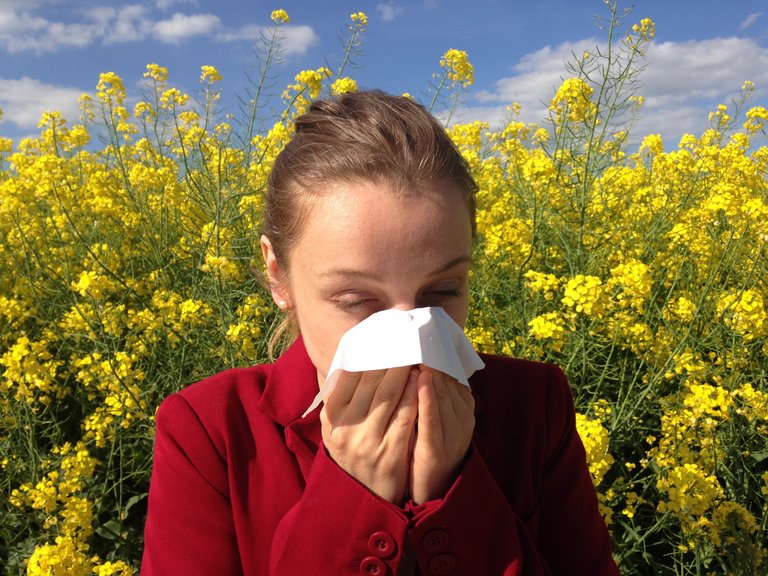Separating the Truth from Misconceptions about Allergies
Food allergy is something that comes up all of a sudden. It isn't something that we are born with them but then, it has become a growing concern affecting millions of individuals worldwide, with symptoms ranging from mild discomfort such as sneezing, to life-threatening reactions. Food allergies trigger the immune system to produce an abnormal response to specific proteins in food. These reactions can manifest in various ways, such as skin rashes, gastrointestinal distress, respiratory issues, or even anaphylaxis—a severe, potentially fatal reaction but then, there are certain things that we believe are true about allergies but aren't.

Image: Wikimedia
For instance, we believe peanuts are the most common food allergy bu while they are common without any doubt, some people also have shellfish allergy and in children, cow milk is actually the most common allergy. The common food allergies are Cow milk, Fish, Soy, Shellfish, Egg, Tree nuts, and Peanut.
Using oral antihistamine such as Benadrylcan be used for minor allergic reactions such as itchiness and hives but in cases where it becomes more serious like Anaphylaxis such as trouble breathing, difficulty swallowing, and tongue swelling, it is advisable to go to the hospital where you can be given epinephrine auto-injector. Drugs like Benadryl can should not be a go to medication for all type of allergies.

Image: Needpix
It is very easy to mistake food allergy for food intolerance and most people mistake these two. They are not the same because food allergies are caused by the immune system. The antibody called IgE is responsible for this reaction when it reacts with food releasing histamine which causes the allergic symptoms but food intolerance or sensitivity doesn't have any of those as they are not mediated by the immune system but rather is a digestive problem that occurs after eating certain food leading to gastrointestinal symptoms that are not life-threatening. An example of food intolerance or sensitivity is lactose intolerance which is as a result of the absence of lactase in the body, leading to symptoms such as bloating, diarrhea, feeling of weakness and fatigue.
Someone was asking how she was going to know if she had any food allergy, and I told her that the best way for a person to know they have food allergy is to eat the food. It is known as Oral Challenge, and it is the gold standard in diagnosing food allergies and it is safe when done in a controlled setting. In our conversation, she asked if allergies can be cured since it can be life-threatening but the answer is No at least for now but then, there is an FDA-approved protocol for peanut allergy known as Oral Immunotherapy for peanut allergy which is when a small amount of the peanut allergen overtime.

Image: Picryl
Then we might begin to ask "what if we do not swallow the food?" Well, for allergic reactions,you do not need to swallow the food. Something as little as touching the food without ingesting and lead to an allergic reaction. In the case of allergies like shellfish allergy, people can experience allergic reaction from the steam when boiled as some of the protein end up in the steam, and in this case, it can be airborne and people with this allergy can start to experience reactions without eating the shellfish.
Understanding food allergies, their symptoms, and management strategies is essential for individuals, caregivers, and healthcare providers alike. By debunking misconceptions, promoting accurate diagnosis, and advocating for safe practices, we can effectively navigate the complexities of food allergies and ensure the well-being of affected individuals in diverse settings. Continued research, education, and awareness efforts are paramount in addressing this pressing public health issue.
https://www.nutricia.com/specialize/allergy/facts.html
https://www.ncbi.nlm.nih.gov/pmc/articles/PMC2823764/
https://allergyasthmanetwork.org/anaphylaxis/
https://my.clevelandclinic.org/health/diseases/8619-anaphylaxis
https://www.foodallergy.org/resources/oral-food-challenge
https://www.nhs.uk/conditions/food-allergy/
https://www.nih.gov/news-events/nih-research-matters/oral-immunotherapy-peanut-allergy-young-children
https://www.nhs.uk/conditions/food-intolerance/
Thanks for your contribution to the STEMsocial community. Feel free to join us on discord to get to know the rest of us!
Please consider delegating to the @stemsocial account (85% of the curation rewards are returned).
Thanks for including @stemsocial as a beneficiary, which gives you stronger support.
You have been curated manually, keep up the good work!